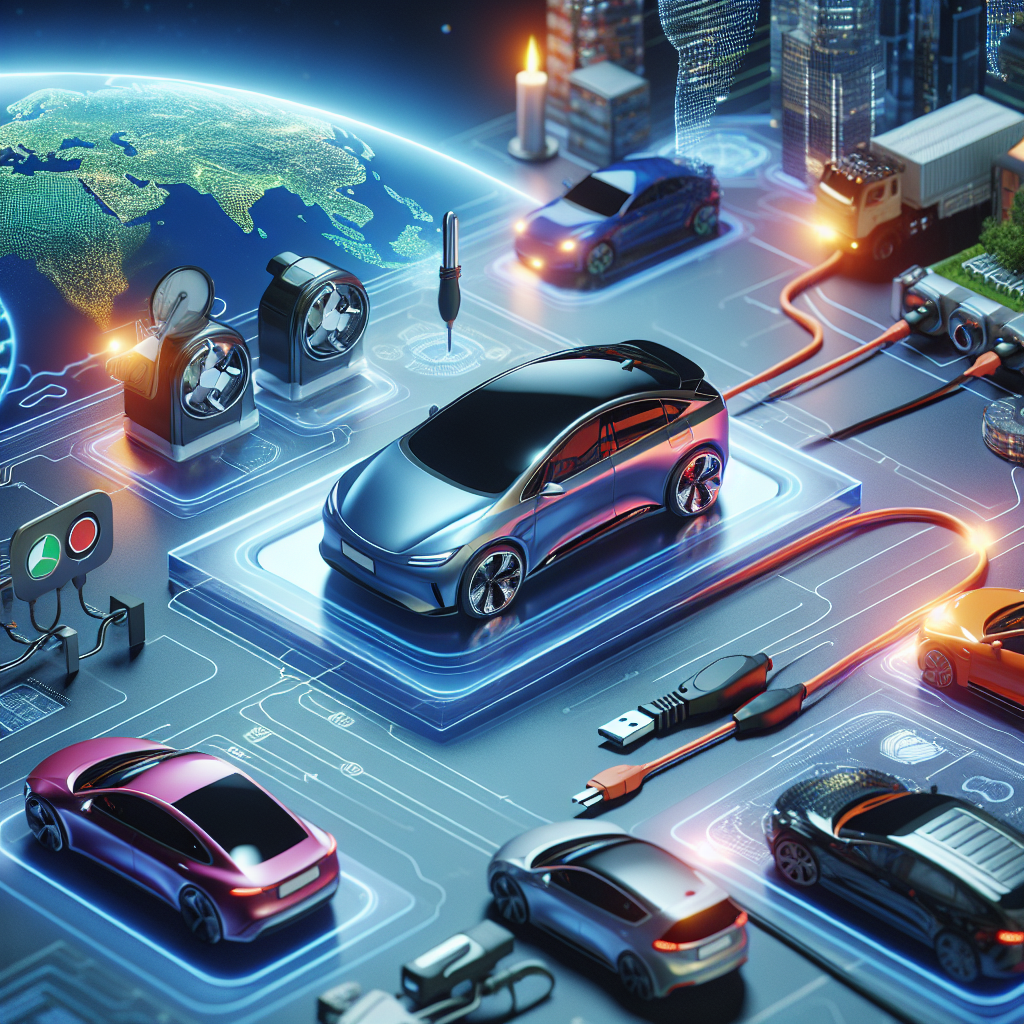Deskripsi meta: Berita terbaru dunia otomotif: perkembangan mobil listrik dan tantangan industri.
Berita Terbaru Dunia Otomotif: Mobil Listrik dan Tantangan Industri
-
Table of Contents
- Introduction
- The Current State of Electric Vehicles in Indonesia
- Low Adoption Rates
- Government Initiatives
- Partnerships with International Automakers
- Challenges Facing the Indonesian Automotive Industry
- Infrastructure Development
- Cost Considerations
- Supply Chain Development
- The Future of Electric Vehicles in Indonesia
- Environmental Benefits
- Job Creation and Economic Growth
- Summary
Introduction

The automotive industry is undergoing a significant transformation worldwide, with the rise of electric vehicles (EVs) leading the way. In Indonesia, the world’s fourth most populous country, the adoption of electric cars has been relatively slow compared to other countries. However, recent developments and government initiatives suggest that the Indonesian automotive industry is gearing up to embrace the electric revolution. This article will explore the latest news and challenges surrounding electric vehicles in Indonesia’s automotive industry.
The Current State of Electric Vehicles in Indonesia
Low Adoption Rates
Despite the global surge in electric vehicle sales, Indonesia has lagged behind in embracing this technology. One of the primary reasons for the slow adoption is the lack of charging infrastructure. The limited number of charging stations makes it inconvenient for EV owners to recharge their vehicles, especially during long journeys. Additionally, the high cost of electric vehicles compared to conventional cars has deterred many potential buyers.
Government Initiatives
Recognizing the need to accelerate the adoption of electric vehicles, the Indonesian government has taken several initiatives to promote the use of EVs. In 2019, President Joko Widodo announced a plan to make Indonesia the largest producer of electric vehicles in Southeast Asia by 2025. The government aims to attract investment in the EV sector and develop a comprehensive ecosystem that supports the production, distribution, and usage of electric vehicles.
Partnerships with International Automakers
To achieve its ambitious goals, Indonesia has sought partnerships with international automakers. In 2020, the Indonesian government signed a memorandum of understanding with South Korea’s Hyundai Motor Company to develop an electric vehicle manufacturing plant in Indonesia. This partnership aims to leverage Hyundai’s expertise in EV technology and Indonesia’s abundant natural resources, such as nickel, which is a key component in EV batteries.
Challenges Facing the Indonesian Automotive Industry
Infrastructure Development
One of the major challenges in the widespread adoption of electric vehicles in Indonesia is the lack of charging infrastructure. The government’s plan to install 2,000 charging stations by 2025 is a step in the right direction, but it still falls short of meeting the growing demand. To encourage private investment in charging infrastructure, the government needs to provide incentives and create a favorable regulatory environment.
Cost Considerations
The high cost of electric vehicles remains a significant barrier to their adoption in Indonesia. EVs are generally more expensive than conventional cars due to the cost of batteries and other components. However, as technology advances and economies of scale come into play, the prices of electric vehicles are expected to decrease. The government can further support the adoption of EVs by providing incentives such as tax breaks and subsidies to make them more affordable for consumers.
Supply Chain Development
To become a major player in the electric vehicle industry, Indonesia needs to develop a robust supply chain for EV components. Currently, the country relies heavily on imported components, which adds to the overall cost of electric vehicles. By encouraging local production of key components and attracting foreign investment in battery manufacturing, Indonesia can reduce its dependence on imports and create a competitive advantage in the global EV market.
The Future of Electric Vehicles in Indonesia
Despite the challenges, the future of electric vehicles in Indonesia looks promising. The government’s commitment to developing the EV industry, coupled with partnerships with international automakers, indicates a strong push towards electric mobility. As the infrastructure improves and the cost of electric vehicles decreases, more Indonesians are likely to embrace this sustainable mode of transportation.
Environmental Benefits
One of the key advantages of electric vehicles is their positive impact on the environment. Indonesia, with its high population density and traffic congestion, faces significant air pollution challenges. Electric vehicles produce zero tailpipe emissions, reducing air pollution and improving air quality in urban areas. By transitioning to electric vehicles, Indonesia can make significant progress towards achieving its climate change and sustainability goals.
Job Creation and Economic Growth
The development of the electric vehicle industry in Indonesia has the potential to create new job opportunities and drive economic growth. The establishment of EV manufacturing plants and the growth of the supply chain will generate employment across various sectors. Moreover, the export potential of Indonesian-made electric vehicles and components can contribute to the country’s export revenue and reduce its dependence on imported fossil fuels.
Summary
In conclusion, the Indonesian automotive industry is gradually embracing electric vehicles, driven by government initiatives and partnerships with international automakers. While challenges such as infrastructure development, cost considerations, and supply chain development exist, the future of electric vehicles in Indonesia looks promising. The environmental benefits, job creation potential, and economic growth associated with the electric vehicle industry make it a compelling opportunity for Indonesia. With continued support from the government and collaboration with industry stakeholders, Indonesia can position itself as a key player in the global electric vehicle market.







